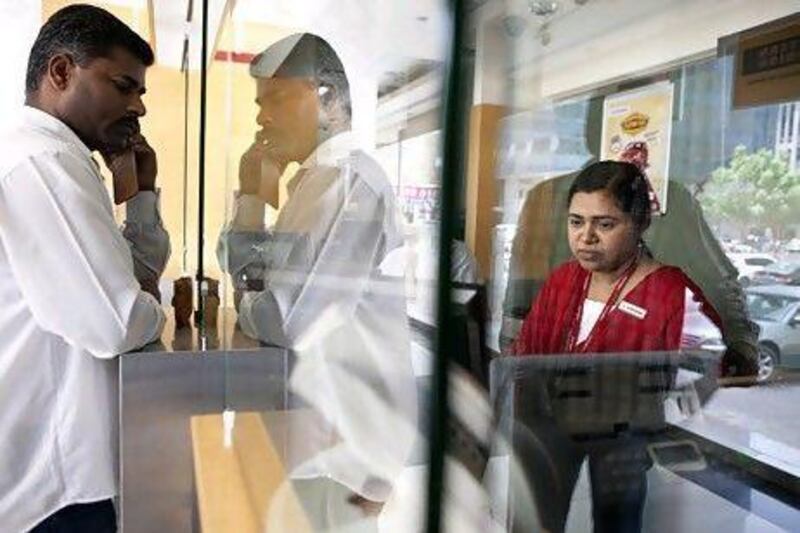Demand for manpower to build a growing number of infrastructure projects in the Arabian Gulf is helping to drive remittance flows for Western Union.
Remittances in the Middle East and Africa rose 6 per cent during the first quarter of the year, with the bulk of cash emerging from the Gulf.
"The social spending in the Gulf is helping," Jean Claude Farah, Western Union's senior vice president for the Middle East and Africa, said yesterday.
"If the Gulf is bettering its infrastructure projects, who will do all the work? It's people from the manpower-exporting countries who will go here, to Saudi Arabia, Oman and Kuwait."
Remittance flows are rebounding after uprisings in several countries last year slowed migration in the region and disrupted the flow of cash. Despite the unrest, Western Union said none of its outlets in the region were closed for more than 21 days.
Growth of remittances fell to 1 per cent last year from 3 per cent the year before, Mr Farah said.
The rebound this year is being propelled by higher spending in the GCC. At the start of this year the Executive Council in Abu Dhabi gave the go-ahead for a host of projects including Abu Dhabi International Airport's Midfield Terminal and projects on Saadiyat Island.
Similarly, Qatar is raising spending on major infrastructure projects by a quarter this year as it gears up to host the 2022 Fifa World Cup.
Several of GCC states have also raised public-sector wages helping to drive spending in the region's retail and tourism sectors.
Widely viewed as a shadow sector to banking, the money-transfer industry enables migrant workers to send funds to their families, who can pick them up either through transfer agents or via the internet.
Cash inflows have provided a vital lifeline to several of the Arab Spring countries hit by rising unemployment and economic woes since last year.
But the euro-zone debt crisis risks hurting several countries in North Africa by curtailing the flows of cash from migrant workers. Significant numbers of Moroccans, Tunisians and Libyans work in European countries such as Spain, France and Italy.
The World Bank warned last week money transfers from the euro zone to developing countries including those in the Middle East and North Africa could drop 5 per cent in the event of a break-up of Europe's single-currency bloc.
"From the EU countries remittances might decline. Most definitely it will have an impact on Tunisia and Morocco," said Ahmed Ghoneim, a professor in economics at Cairo University, who was the author of a study for Western Union on regional remittances.
He also said more needed be done to put remittances to better use.
"Remittances are not channelled in the right way," he said.
"They are not used for investment; they are used to build houses and to alleviate poverty but they are not used to go into the system to enhance growth for the receiving countries."
The World Bank last year advised Egypt and other North African nations to consider creating so-called diaspora bonds to generate government cash for rebuilding their economies.





